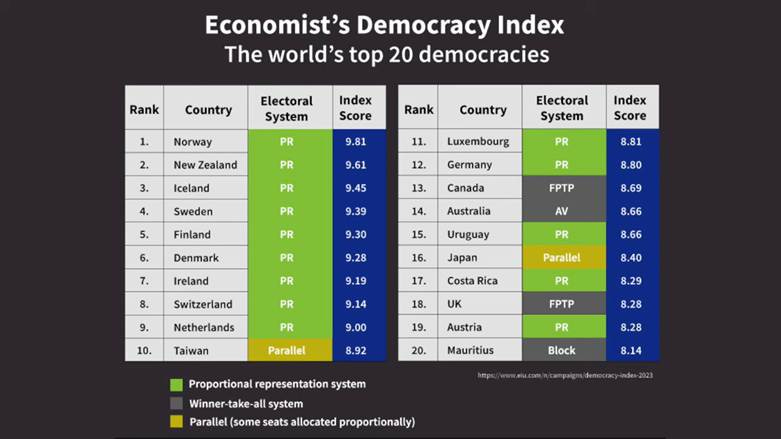Photo: Frank Domenic, news and politics commentator and creator who focuses on Canada and Ontario Credit: Photo provided by Frank Domenic
On February 27th, Ontarians went to the polls. Well, some of them did. According to Elections Ontario, a non-partisan, independent office of the Legislative Assembly of Ontario, the estimated cost of that snap election is $189 million.
Doug Ford had hoped to win between 90 and 100 of the 124 available provincial seats. Instead, Ford lost three seats. And, while Ford maintained a majority government, let’s look at how that actually breaks down.
Only 45 per cent of Ontarians turned out to vote. Of those voters, only 43 per cent voted for a Progressive Conservative candidate. So, with less than 50 per cent support, Ford got a majority government with 100 per cent of the power.
The truth is, the “Did Not Vote Party” actually got the largest share of the votes in the Ontario election.
Today, I’m speaking with Frank Domenic about replacing the current first-past-the-post voting system with proportional representation in order to achieve a more balanced outcome that truly reflects the will of the people.
Frank is a news and politics commentator and creator who focuses on Canada and Ontario. With a progressive minded outlook, Frank tries to focus on good policy and evidence backed ideas.
Currently, provincial and federal elections rely on first-past-the-post, winner takes all. Proportional representation is very different in that the number of seats a party gets is directly linked to the party’s share of the votes. And, in some proportional representation iterations that includes a minimum voting threshold to keep out fringe elements.
Frank explains how proportional representation works and how it differs from first-past-the-post and ranked ballot voting. He also explains how voters encouraged to vote strategically often feel disenfranchised and how that plays into voter apathy and lower voter turnout.
Snapshot of the world’s top 20 democracies Credit: Economist Intelligence
Currently, countries scoring the highest on the Economist’s Democracy Index all have proportional representation. Truth is, according to the Democracy Index, Canada ranked 13th out of 20 and the United States didn’t even make the top 20.
Looking at the Scandinavian countries dominating the list, all have robust social safety nets, more unionization, better parental leave and that translates into those countries scoring higher when it comes to overall happiness as well.
The countries ranking highest on the Democracy Index also tend to form coalition governments which forces parties to work together for the common good of the people. I encourage Small Change subscribers to watch the Netflix series, Borgen, set in Denmark, to really understand how coalition governments work.
Frank tells Small Change listeners how proportional representation creates a voting system that better reflects democracy, the democratic process and better represents underrepresented populations like Indigenous folks.
We also discuss the role citizen assemblies and a national referendum could play in educating the public about the benefits of proportional representation as well as ensuring buy-in for a smooth transition.
Realistically, there are downsides to proportional representation so Frank and I discuss how those can be averted.
And, finally, we look at how realistic it is to dream that Ontario and Canada could transition to proportional representation as a means of ensuring more voices are heard and represented by elected governments.
Additional resources:
Frank’s YouTube video: Can Canadian Elections Be Better
Follow Frank Domenic on Twitter @TheFrankDomenic; TikTok @frankdomenic; Bluesky; Youtube; Instagram; FaceBook and LinkedIn.
Also check out: Fair Vote Canada; Smart Voting; as well as Not One Seat
Thanks to everyone who read today’s article and listened to my podcast. With your continued support, a little Nicoll can make a lot of change.
Music: Real Estate by UNIVERSFIELD is licensed under a Attribution 4.0 International License. freemusicarchive.org.
*Be sure to download the Substack app to get the most from your podcast.














Share this post